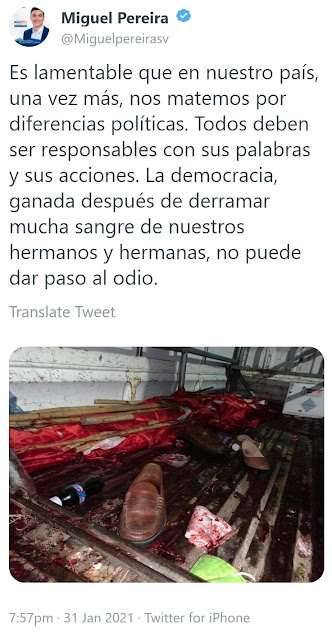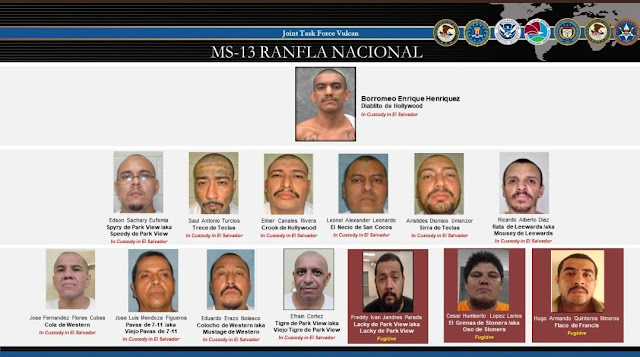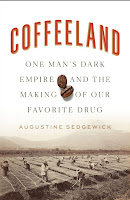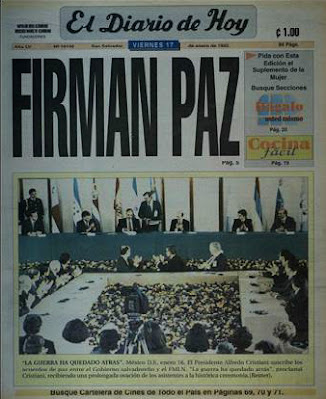Political violence erupts in San Salvador

Political violence erupted in El Salvador tonight in a manner not seen in decades. As the FMLN was concluding a rally in San Salvador to kick off the campaign for its mayoral candidate Rogelio Canales, a suspect pulled up in a blue car and began shooting. Two people were killed and five wounded in the shooting which occurred in the charged atmosphere leading up to El Salvador's national elections four weeks from today. As of late Sunday, three suspects had reportedly been arrested . Images circulated on twitter of the blood spattered bed of a truck which had been participating transporting rally participants. It's lamentable that in our country, one more time, we kill each other over political differences. All ought to be responsible with their words and actions. Democracy, earned after shedding so much blood of our sisters and brothers, can't give way to hate. -- Miguel Pereira, FMLN mayor of San Miguel Many were outra...






